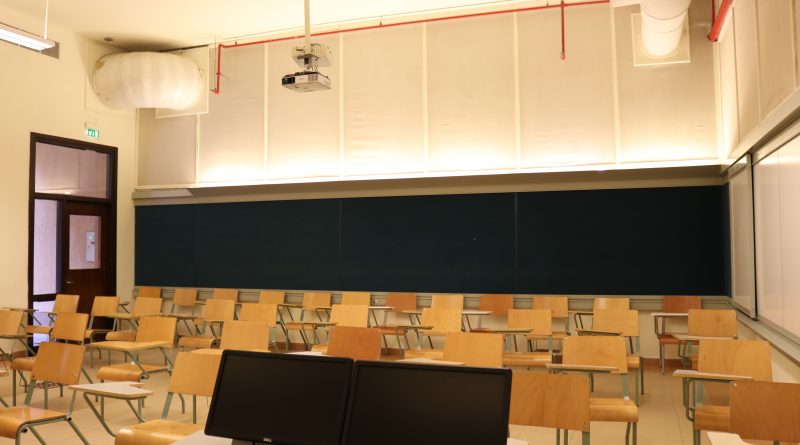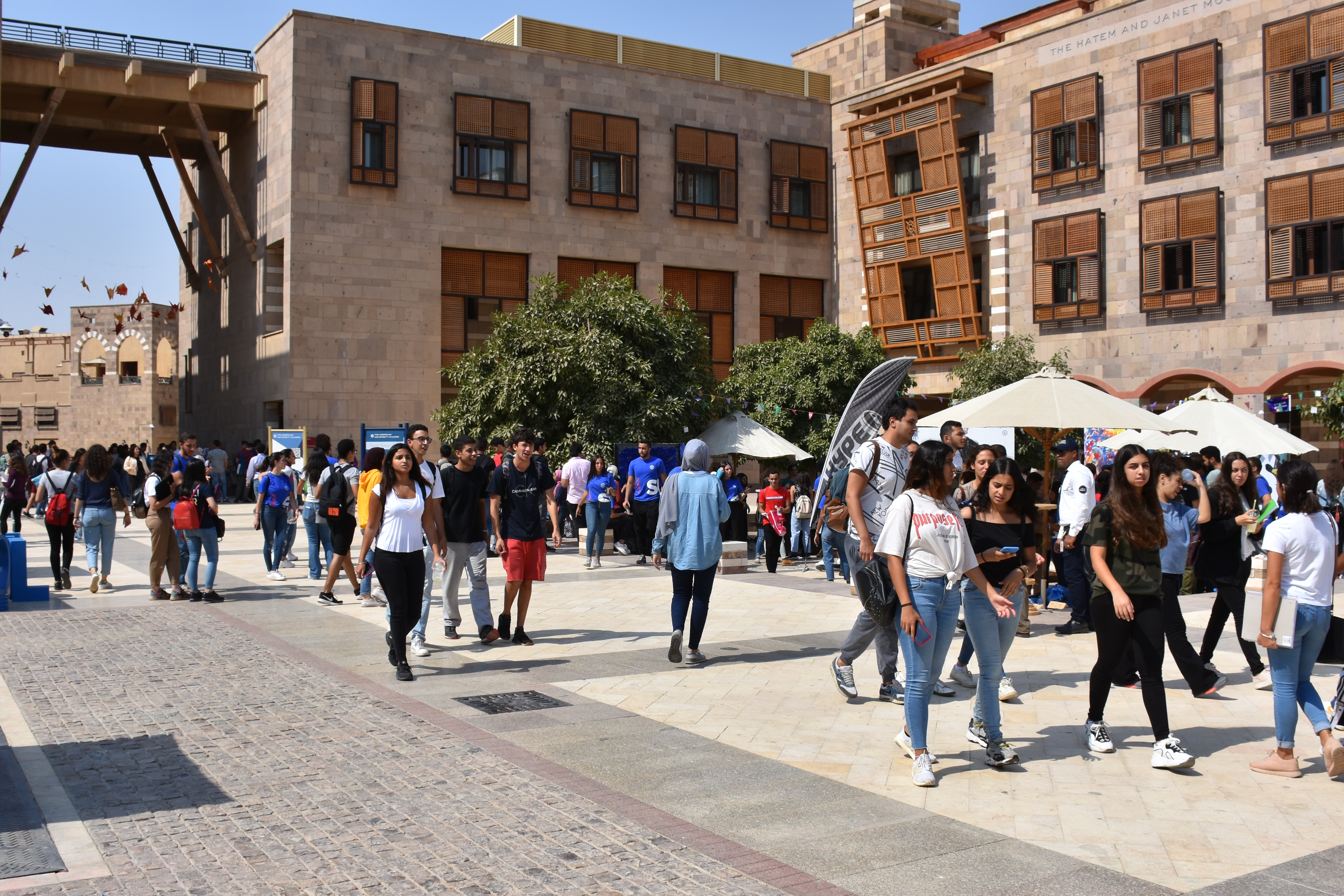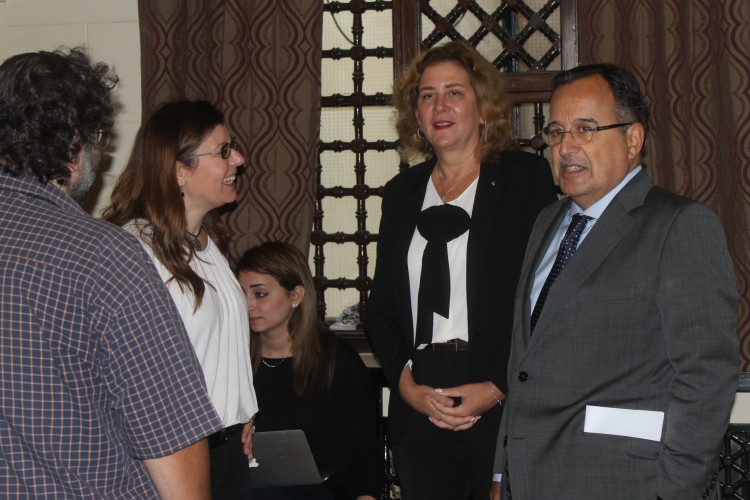Professors Cope Amidst the Pandemic
By: Abdallah Abbas & Maya Abouelnasr
@abdallahabbas13
@EmEn1125
Photo: Doha Wang
AUC faculty say they are continuing to explore innovative ways to keep students engaged in what is often an impersonal process of teaching online.
While some professors may have felt prepared to deal with the challenges following the shift online, many felt lost. Non-Egyptian professors also had the added struggle of being away from loved ones, with some not being able to go back in the summer because of travel restrictions.
“There were some faculty members who were terrified by this idea of going online… You get somebody who wants to really have it [online learning] providing meaningful experience for students, but is just terrified by the whole process,” said Matthew Hendershot, associate dean of undergraduate Studies and the Academy of Liberal Arts and instructor in the Department of Rhetoric and Composition.
Hendershot, having been well-acquainted with the online environment pre-COVID-19, was looking forward to helping his less prepared colleagues to navigate using Zoom and adapt to the online environment with a positive attitude.
However, he faced some challenges, one of which pertained to his teaching style that usually focuses on forming personal connections with his students, which he felt was lost behind a screen.
“Last semester, for the first time, I felt like, for my students, my course was simply just that. It’s a course you take, you finish, you get your grades, and you go on. That’s not why I teach,” Hendershot said.
He added that he has been trying to find new ways to engage with his students, such as short, occasional 15-minute meetings for a chat. As well as introductory emails, where students introduce themselves and share their goals and interests to build a relationship at the beginning of the semester.
On top of working towards making the shift to online learning smoother for his students, Hendershot had to postpone his summer plans where he was supposed to have his family over in Egypt, but the borders were closed and flights were discontinued.
To make up, he focused on engaging in several meaningful activities that kept him busy. Over the past six months, he had been reconnecting with friends, spending more time reading with his sons, as well as gardening and planting.
Amidst similar struggles, Hadeel El-Ahraf, Adjunct Faculty in the Psychology Department, said that she believes one’s outlook regarding a task will determine the effectiveness of the outcome.
“If we view teaching online as an opportunity to learn something new, we can be more receptive to the whole process and maybe even end up enjoying it,” she said.
In her case, she mostly missed seeing the look in her students’ eyes when they understood a concept. Since some students opted to have their cameras off, she rarely gets to experience that feeling with online learning.
Instead of dwelling on that, she chose to pay more attention to the manner in which her students expressed interest in the course material.
“The curiosity, understanding and eureka moments are all still there. They just have a different form. By shifting my focus, I found that what I love most about teaching is still there. I just had to learn how to see it in a new way,” El-Ahraf said.
She added that the most important thing for professors and students alike to remember in the face of insecurities with online learning is to be kind to oneself and to view challenges as an opportunity for growth.
Kathleen Saville, senior instructor in the department of Rhetoric and Composition explained that she didn’t initially feel fully prepared for the shift, but she now feels that it has helped expand her skills as a teacher.
The teaching process, however, has not been without its challenges. This is especially due to the unpredictable internet connectivity in Egypt, which has interrupted many Zoom sessions and has led to some feeling lost and out of focus.
“Teaching a Zoom session is a bit like choreographing a scene in a play. Like you are playing to an audience. If you hit the mark, they smile and if not, they don’t,” Saville said.
She added that the experience of teaching while sitting, as opposed to walking around a room, was odd at first. She believes one needs to be an optimist to adapt to teaching online, especially since the class is now made up of mostly black screens with names, which makes the experience even stranger.
When she’s not teaching, her sources of comfort and anchors during this time have been her writing, bookbinding, and talking to her son via Skype.
According to the American Psychological Association (APA) and Centers for Disease Control and Prevention (CDC), it is important to care for oneself and for others during this time to ensure the mental well-being of all members of the community stays intact.
In an interview with AUC TV, Associate Dean of the School of Humanities and Social Sciences (HUSS) Hani Henry, said that mental wellness can be maintained through self-transcendence.
This refers to viewing matters from a bigger, higher perspective to be more inclusive of others. In doing so, one can reduce their stress with the reminder that what they’re going through is part of a shared experience.




